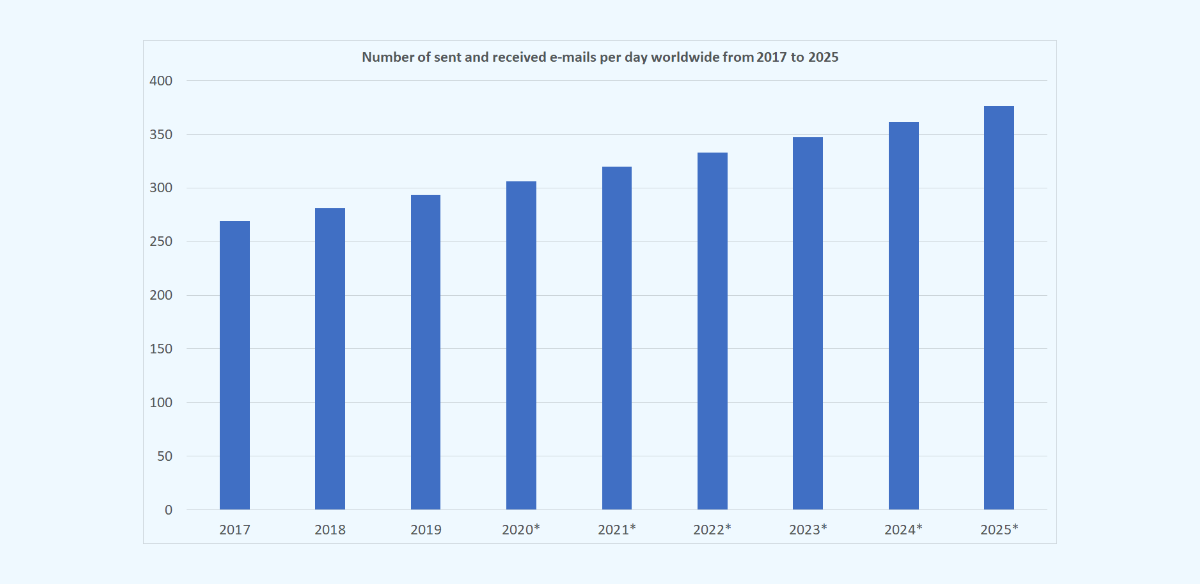
In an era dominated by instant messaging, social media, and video conferencing, email may seem like a relic of the past. However, email remains a crucial tool for communication in both personal and professional settings. While synchronous communication channels such as phone calls and video chats are great for immediate responses, they can be distracting and time-consuming. In contrast, email is an asynchronous communication method that allows for efficient and effective communication. In this article, we’ll explore why email is still important today and why it should not be overlooked in favor of newer, trendier communication tools.
Email is an electronic asynchronous communication tool that has become one of the most widely accepted federated communication tools today. It allows users to send messages to individuals or groups in various locations worldwide. The federated nature of email allows for communication between different email services, which means that users of different email providers can still communicate with each other seamlessly. This interoperability has made email an essential tool for businesses, educational institutions, and individuals around the world. Moreover, email offers a range of features that make it a versatile tool for communication, including attachments, encryption, and archiving. Due to its ubiquity, reliability, and functionality, email has cemented its position as one of the most popular communication tools in the digital age.
Asynchronous communication is a form of communication where there is a time delay between messages. Email is one of the most popular forms of asynchronous communication, and it provides several benefits, including:
One of the main benefits of asynchronous communication is flexibility. It allows people to communicate at their own pace and on their own schedule. This is particularly important in today’s fast-paced world, where people are often juggling multiple tasks and responsibilities. With email, people can take the time to compose thoughtful and detailed messages, without the pressure of an immediate response.
Email is also great for organizing information. With email, you can easily categorize messages, create folders, and search for specific information. This makes it an ideal tool for managing complex communication threads, such as project updates or customer support requests.
Another advantage of asynchronous communication is that it reduces interruptions. Synchronous communication tools like instant messaging or phone calls can be disruptive and distracting, especially if they occur during important tasks or meetings. Email, on the other hand, allows people to check their messages at their own convenience, without disrupting their workflow.
Asynchronous communication can also increase productivity. It allows people to focus on their work without being constantly interrupted by messages and notifications. It also allows people to prioritize their tasks and respond to messages when they have the time and mental capacity to do so.
While synchronous communication channels such as phone calls and video chats have their benefits, they also have some drawbacks that email can overcome. Some of the advantages an asynchronous communication tool such as email has over synchronous communication tools include:
One of the biggest drawbacks of synchronous communication channels is that they can be incredibly distracting. Phone calls and video chats require your full attention, making it difficult to multitask or work on other projects while communicating. In contrast, email allows you to communicate without being distracted from other tasks.
Synchronous communication channels can also be incredibly time-consuming. Phone calls and video chats often require scheduling, preparation, and post-meeting follow-up. In contrast, email allows for communication to take place without any scheduling or preparation, making it an efficient use of time.
Synchronous communication channels can also be more pressure-filled than email. Phone calls and video chats require immediate responses, which can be stressful and anxiety-inducing. In contrast, email allows for more thoughtful and considered responses, as the recipient can take their time to craft a response.
Despite the rise of other communication channels, email remains a vital tool for both personal and professional communication. Here are some statistics that highlight the importance of email:

In professional settings, email is a crucial communication tool that is used for everything from customer support to project management. Email allows for efficient communication between team members, even if they are located in different time zones or countries. Additionally, email is an excellent tool for sending formal business communications, such as proposals, contracts, and invoices.
Email is a popular tool for customer support because it allows customers to communicate their issues and concerns at their own pace. This means that customers can take the time to clearly explain their problem, attach screenshots, or provide other relevant information. Customer support teams can then review the email and respond with a well-thought-out solution.
Email is also an excellent tool for project management. Project managers can use email to send project updates, assign tasks, and communicate with team members. Email allows project managers to easily keep track of communication threads and ensures that everyone on the team is on the same page.
Some of the frequently asked questions about email include:
Absolutely. While instant messaging is great for quick back-and-forth communication, email is still the best tool for more complex communication threads that require organization and record-keeping.
Email is better than phone calls and video chats because it allows for communication to take place without distractions, is an efficient use of time, and puts less pressure on the recipient to respond immediately.
Email can be secure if proper precautions are taken. This includes using strong passwords, encrypting sensitive information, and using secure email providers. Additionally, email providers have implemented various security measures to protect users from phishing attacks and other online threats.
While email has been around for decades, it continues to evolve and adapt to the changing needs of its users. In recent years, email providers have implemented new features and integrations that make email even more powerful and useful.
One of the most exciting developments in email technology is the use of artificial intelligence (AI). AI can be used to automate tasks such as email filtering, prioritization, and response drafting. This can help users save time and ensure that important messages are not overlooked.
Email is also being integrated with other tools and platforms, such as chat apps and online meeting software. This makes it easier for users to manage their workflow and ensures that important communication threads are not overlooked.
Email remains an important and efficient communication tool in the digital era. While synchronous communication channels have their benefits, email’s flexibility, organization, and record-keeping make it an invaluable tool for both personal and professional communication. As email continues to evolve and adapt, it will remain a crucial tool for communication in the years to come.
If you would like full information about our email hosting please click here. If you have additional questions or comments please contact us at one of the means available at: https://www.imageway.com/contact-us
All rights reserved. Copyright © 2000-2025 Imageway, LLC.